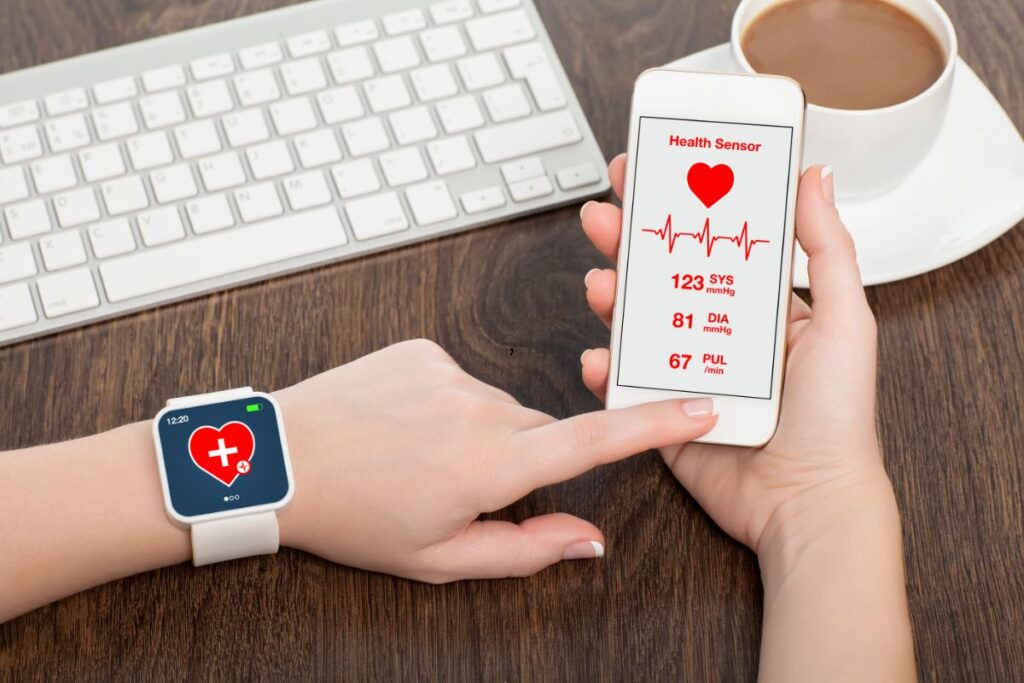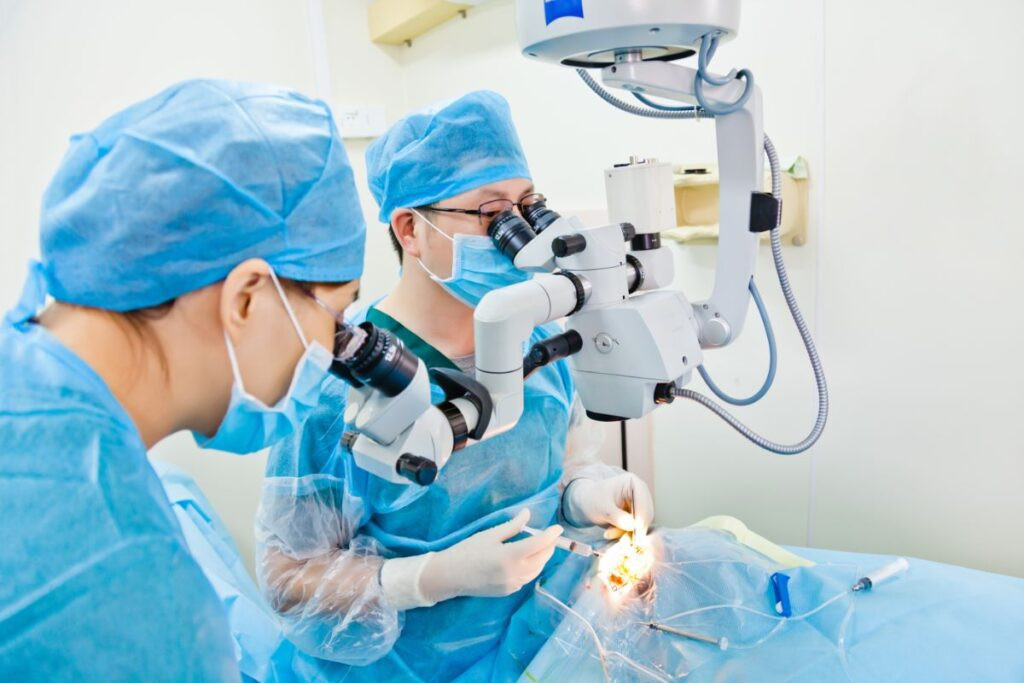The Future of Health Technology: Transforming Healthcare with Innovation

The future of health technology is rapidly evolving, transforming the way we approach healthcare, diagnose conditions, and enhance patient outcomes. From artificial intelligence to wearable devices, healthcare innovation is revolutionizing how we live, heal, and manage diseases. But what does the future hold for us? Let’s dive into the exciting advancements that are reshaping the healthcare landscape and explore how you can benefit from these changes.
How Technology is Shaping the Future of Healthcare
Technology is playing an increasingly vital role in healthcare, and it’s not just about new gadgets and tools. The integration of technology into healthcare systems is enabling more personalized, efficient, and cost-effective care. Innovations in health technology are expanding access to healthcare services and improving overall patient experience.
Telemedicine: Bringing Healthcare to Your Doorstep
Telemedicine has surged in popularity, especially after the pandemic, and it’s here to stay. You can now consult with doctors, specialists, and healthcare providers remotely. This technology allows you to avoid long wait times, travel, and unnecessary office visits. It’s making healthcare more accessible, especially in rural areas or for those with limited mobility.
Experts predict that telemedicine will continue to grow. Dr. Maria Johnson, a leading healthcare futurist, states, “Telemedicine has expanded our healthcare capacity, and we are only scratching the surface in terms of its potential.” Expect telehealth to evolve with AI-driven diagnostic tools, making virtual consultations even more effective.
AI and Machine Learning in Diagnosis
Artificial Intelligence (AI) and machine learning (ML) are revolutionizing the way doctors diagnose and treat diseases. AI can analyze vast amounts of data from medical records, lab results, and imaging, enabling doctors to identify patterns that would be difficult for humans to discern.
For instance, AI is already being used to identify early signs of conditions like cancer, diabetes, and heart disease. A study by the Mayo Clinic found that AI-powered diagnostic tools outperformed human doctors in diagnosing certain conditions.
In the future, AI will not only assist doctors but could also become an autonomous diagnostic tool, delivering faster, more accurate results.
Wearable Technology: Monitoring Health in Real-Time
Wearable technology is one of the most promising innovations in health tech. Devices such as smartwatches, fitness trackers, and even bright clothing enable continuous health monitoring. These gadgets can track everything from heart rate and sleep patterns to blood oxygen levels and stress markers.
This real-time data collection enables both individuals and healthcare providers to monitor health trends and take proactive steps. For instance, wearable ECG monitors can detect heart irregularities and alert users before a potential heart attack or stroke.
As these technologies advance, expect them to become even more integrated into our daily lives, with AI interpreting the data to offer personalized health recommendations.

The Role of Data in Health Technology: Big Data and Analytics
Data is becoming one of the most valuable assets in healthcare. The future of health technology heavily relies on big data and analytics to enhance care delivery, prevent diseases, and improve patient outcomes.
How Big Data is Changing Healthcare
Big data enables healthcare providers to analyze extensive patient information sets, identify trends, predict outcomes, and make informed decisions. This can lead to personalized treatment plans based on a patient’s genetic makeup, lifestyle, and medical history.
For example, IBM’s Watson Health uses big data to recommend treatments based on medical literature and patient records. It’s helping doctors make evidence-based decisions faster and more accurately.
As healthcare systems adopt data-driven approaches, the future will likely see an increase in predictive tools that can anticipate health issues before they occur, offering preventive care rather than reactive solutions.
Blockchain Technology in Healthcare
Blockchain isn’t just for cryptocurrencies. In healthcare, blockchain can provide secure and transparent data storage, ensuring that patient records are protected from unauthorized access. It can also streamline billing, insurance claims, and the transfer of medical records, reducing inefficiencies and errors.
Dr. James Collins, a healthcare technology consultant, suggests that blockchain will become essential for data security. “As healthcare becomes more digital, secure, immutable records are critical for protecting patient privacy and ensuring accuracy.”
How Robotics is Transforming Surgery
Robotics is playing an increasingly important role in modern surgery, enhancing precision and reducing recovery times. Robotic-assisted surgeries enable minimally invasive procedures, resulting in smaller incisions, less pain, and a faster recovery.
The Rise of Robotic-Assisted Procedures
The use of robotic systems, such as the Da Vinci Surgical System, enables surgeons to perform intricate procedures with greater precision. These systems offer 3D visualization, enhanced dexterity, and real-time data, making surgeries safer and more effective.
Future advancements could bring even more sophisticated robots capable of performing complex surgeries with minimal human input, offering a higher degree of precision and reducing human error.

Benefits of Health Technology for Patients
The future of health technology isn’t just about improving the healthcare system—it’s about enhancing your health experience. These innovations will empower you to take control of your health in ways that were previously unimaginable.
Improved Accessibility and Convenience
With virtual healthcare options, wearable devices, and AI-driven tools, you can monitor your health from the comfort of your own home. This accessibility makes it easier to manage chronic conditions and maintain your overall well-being.
Personalized Healthcare
Gone are the days of one-size-fits-all treatment. With data-driven insights, AI, and genetic testing, healthcare will become more tailored to your unique needs. Whether it’s personalized medication or a diet plan based on your health data, the future holds a more customized approach to care.
Faster and More Accurate Diagnoses
AI and machine learning will streamline the diagnostic process, enabling faster and more accurate results. These technologies help doctors identify potential issues early, which can lead to better outcomes and less invasive treatments.
Challenges to Overcome in Health Technology
While health technology promises significant benefits, it also presents several challenges ahead. Privacy concerns, cybersecurity threats, and the need for regulatory compliance must all be addressed. Furthermore, there’s the issue of data integration across different platforms, which can hinder the sharing of critical health information.
Data Privacy and Security
As healthcare data becomes more digital, it’s essential to ensure patient privacy and data security. The adoption of technologies like blockchain may help address these concerns, but more work is needed to create secure infrastructures.
Conclusion: A New Era for Healthcare
The future of health technology is bright and brimming with possibilities. With innovations such as telemedicine, AI-powered diagnostics, wearable devices, and big data analytics, healthcare is poised to become more personalized, efficient, and accessible. While challenges remain, the potential for better health outcomes is immense. You are on the brink of a healthcare revolution, and the innovations that will shape the future are already here.

Similar Posts
Turning PDFs Into Presentations Is Frustrating — Here’s How AI Finally Makes It Easier in 2025
Best Educational Apps for Toddlers: Fun & Learning Combined
File Sharing Solutions: Unveiling Advanced Methods Beyond “Files Over Miles”